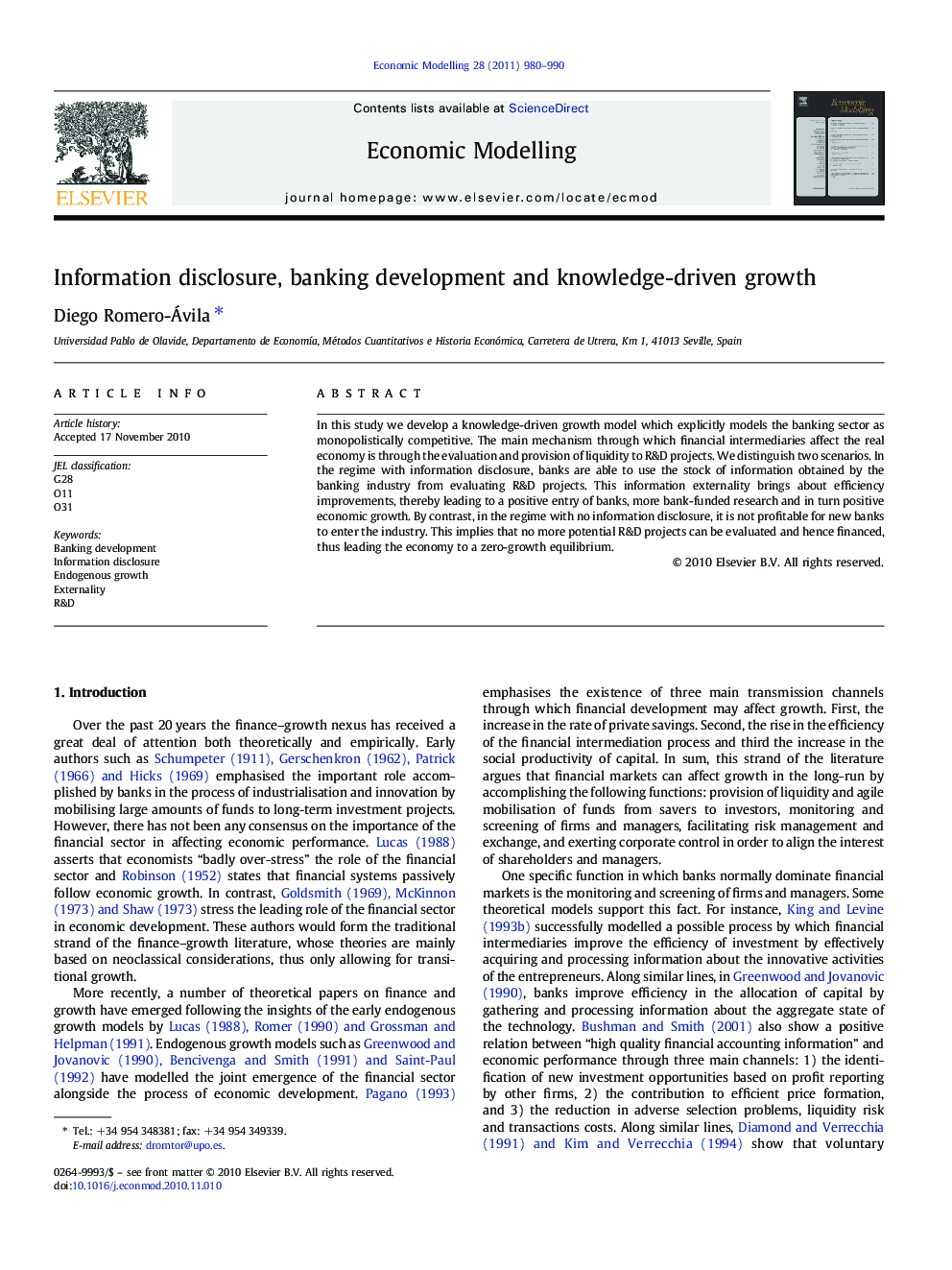| Article ID | Journal | Published Year | Pages | File Type |
|---|---|---|---|---|
| 5055633 | Economic Modelling | 2011 | 11 Pages |
In this study we develop a knowledge-driven growth model which explicitly models the banking sector as monopolistically competitive. The main mechanism through which financial intermediaries affect the real economy is through the evaluation and provision of liquidity to R&D projects. We distinguish two scenarios. In the regime with information disclosure, banks are able to use the stock of information obtained by the banking industry from evaluating R&D projects. This information externality brings about efficiency improvements, thereby leading to a positive entry of banks, more bank-funded research and in turn positive economic growth. By contrast, in the regime with no information disclosure, it is not profitable for new banks to enter the industry. This implies that no more potential R&D projects can be evaluated and hence financed, thus leading the economy to a zero-growth equilibrium.
Research Highlights⺠A knowledge-driven growth model with monopolistic competitive banks is presented. ⺠Banks evaluate and provide liquidity to R&D projects. ⺠In the regime with information disclosure, banks use the stock of information. ⺠This leads to a positive entry of banks, more research and positive output growth. ⺠In the regime with no disclosure, the economy exhibits zero growth.
